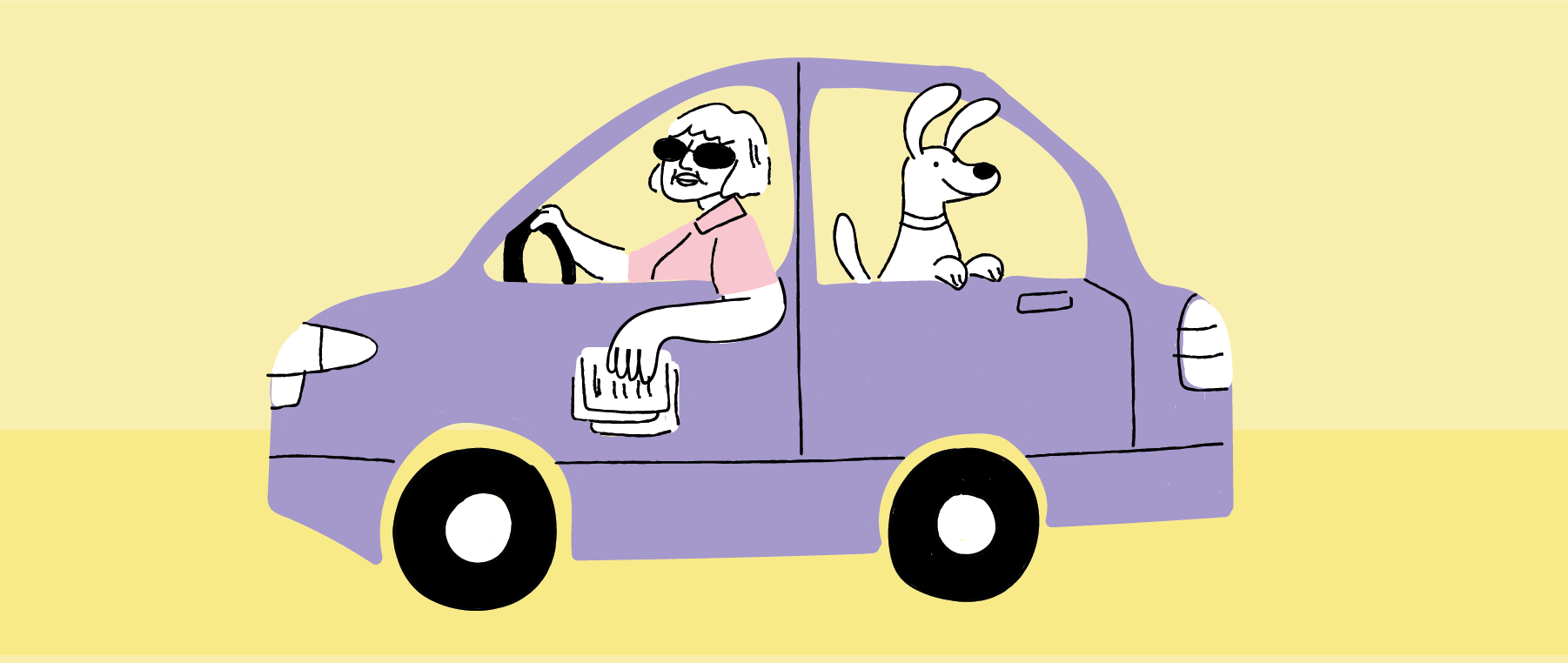VAT on cars in the UK: Let’s get you up to speed


Fresh insights from 2,650 finance decision-makers across Europe
Revving up your knowledge around VAT on cars may well be the key to steering clear of financial potholes.
Understanding how VAT on cars works, from second-hand vans to how exactly road tax and VAT work together, is a crucial part of VAT calculations – especially if you don’t want HMRC knocking on your door anytime soon.
Buckle up and get ready to turbocharge your understanding of Value Added Tax and its impact on vehicle ownership.
|
Key takeaways:
|
Is there VAT on cars?
Almost all new cars are classed as taxable goods with VAT at 20% – regardless of how you buy or lease them. However, some VAT-registered individuals and businesses can gain tax refunds when they do their VAT return, and certain disabled drivers may be eligible for a VAT exemption.
Bear in mind it’s a different story when it comes to second-hand cars, as it depends on whether you buy them from car dealerships that are part of the automotive industry, or a private seller. We’ll return to this later.
Disabled individuals who require adapted vehicles for personal use can buy brand-new cars without paying VAT. However, specific conditions and a pre-purchase form must be fulfilled to qualify for this benefit.
VAT on cars and import duties
If you've imported a vehicle from abroad, HMRC will calculate VAT based on the total cost of the vehicle. This includes things like accessories, delivery charges, and any applicable duties.
Take a look at the table below from HMRC’s website to see whether you’re likely to be charged VAT on your imported car:
|
Why you imported it |
What and how you pay |
|
You’re moving to the UK with your vehicle |
No VAT or duty if you qualify for relief |
|
You’re returning an exported vehicle to the UK |
No VAT or duty if you qualify for relief |
|
You’re visiting the UK or the EU with your vehicle |
No VAT or duty if it qualifies as a temporary import |
|
Any other reason – if you’re not VAT-registered |
VAT and duty – pay HMRC at the UK border (your shipping company may do this for you) |
|
Any other reason – if you’re VAT-registered |
VAT and duty – pay HMRC at the UK border (your shipping company may do this for you) and claim the VAT on your next VAT Return |
Reclaiming VAT on cars
You can reclaim VAT on cars if you’re a VAT-registered business owner who’s:
- Performing a stock in trade of a motor manufacturer or dealer, meaning you intend to sell the car within 12 months
- Intending to use the car primarily as a taxi, driving instruction car or self-drive hire
- Going to ensure the car is used exclusively for the commercial purposes of your business
It's crucial to understand the distinction between personal and commercial vehicles here. If it’s sitting on your drive and easily accessible then it’s considered available for private use by yourself or someone else, because there’s nothing preventing you or an employee from using it for a trip to the shops.
So to stay tax compliant you need to make certain a vehicle is only available for commercial use, not just intended to be used that way.

How much is VAT on a van?
When you buy a brand-new van, get ready to fork out 20% for VAT. But hold your horsepower – if you're a VAT-registered business intending to use the van for business purposes, you can reclaim that VAT.
Combi vehicles
Certain vehicles have the potential for both commercial and personal use. These are often referred to as combi vehicles or ‘lifestyle’ vehicles. You can still claim back VAT so long as they’re used exclusively for business purposes.
To determine whether a vehicle falls under the category of a car or a van for tax purposes, HMRC provides a comprehensive list of car-derived vans and combi vehicles.
A handy rule of thumb is cars are mainly made for carrying passengers and typically have rear windows or space for them, along with a roof structure behind the driver. If it's got three or more wheels and doesn't fit the definition of a car, it's a van.
And if it's got just two wheels, well… that's a bike!
Is there VAT on second-hand cars?
Government regulations mean that if you're buying a used car from a private seller there is a VAT exemption. So if you want to sell the old family vehicle that you paid VAT on when you bought it, you do not need to charge VAT to the person who buys it.
However, if you’re purchasing second-hand from car dealerships, VAT can come into play in two ways:
1. The second-hand margin scheme
Here, dealers calculate VAT based on their profit margin, meaning they only charge VAT on the difference between what they paid for the car and what they sell it for. The VAT rate is typically one-sixth of the profit margin, and it's included in the car's price, rather than separately listed on the invoice.
Alternatively, some dealers may choose to charge VAT at 20% on the entire selling price of a used car. However, this method isn't as common since it results in a higher tax charge compared to the second-hand margin scheme.
2. Charging VAT when you sell a van or car
If you reclaimed VAT when you bought a van or car, then you’ll most likely need to charge VAT to a buyer when you sell it down the road. Check out HMRC’s handy quiz to help you find out whether you need to charge VAT.
If you know you need to charge VAT there are two ways of doing this:
- The first approach involves charging VAT on the full sale price of the van. In this scenario, if the buyer is VAT-registered, they have the opportunity to claim back the VAT. This means they can recoup the VAT amount and reduce their overall expenses.
- The second approach is using the second-hand margin scheme we mentioned earlier. If you use this option the price of the van may be less, but the individual buying the van won't be eligible to claim any VAT back on the purchase.
If you’re selling the vehicle and you’re not registered for VAT then you should not charge VAT on the selling price. In fact, it's illegal.
Buyers should always ask to see an example of a VAT invoice from a seller who claims they’re VAT registered to ensure they’re not being scammed.
Is there VAT on vehicle tax and registration?
Historically vehicle tax and registration are thought of as outside the scope of VAT. VAT is charged at a rate of 20% on the car's pre-tax cost, along with any additional expenses for getting the vehicle road-ready.
When it's time for vehicle registration and taxing your vehicle for the first time with the DVLA (Driver and Vehicle Licensing Agency), you'll need to pay a fee of £55. Keep in mind that this fee already includes VAT within the base price, so there won't be any additional VAT charges to worry about.
You can read more about vehicle registration on the government’s website.
What about parking fines, road tax and fuel?
Now that we’ve covered VAT on cars, you may be wondering – is there VAT on things like parking fines and fuel? And what about the M6 Toll?
Below, you’ll find answers to some of the questions you may be left with when it comes to everything surrounding VAT on cars.
Is VAT charged on parking fines?
When it comes to parking fees, the question of VAT recovery is a bit tricky. It all depends on factors like:
- Where you park
- The purpose of the journey
- The type of vehicle you’re parking
On-street parking charges fall outside the scope of VAT, so no VAT can be reclaimed on those. However, off-street parking facilities, whether operated by a local authority or a private company, are subject to the standard VAT rate of 20%.
So, if your business activity requires parking in off-street facilities, and that facility just so happens to be operated by a VAT-registered entity, you can reclaim the VAT – just make sure you keep the receipt.
As for parking fines, you cannot reclaim any costs from these as they do not attract VAT, since they’re penalties outside the scope of VAT.
Sorry.

Is there VAT on road tax?
There is no VAT included in the cost of road tax, also known as vehicle excise duty (VED). The published rates for VED are equal to the cost of the relevant tax disc, so VAT simply doesn't come into play.
Is there VAT on the M6 toll?
Yes, there is VAT on the M6 Toll. The M6 Toll motorway is operated by a private sector operator, and tolls collected on the motorway are subject to VAT at the standard rate.
VAT is generally charged on tolls for privately operated roads, but it's important to remember that the application of VAT on tolls varies depending on the specific circumstances. In some cases, tolls on public roads or government-operated toll roads may be exempt from VAT.
You can read more about VAT exempt items here.
How much is VAT on fuel?
When it comes to fuel purchases, HMRC charges VAT tax rates at the standard rate of 20%. So, every time you fill up your tank with petrol, diesel or other fuels for vehicles or heating, 20% of the price goes towards VAT. However, there's a reduced rate of 5% for domestic heating fuel.
Want to see where else your business could be saving money on fuel? Check out our guide to HMRC fuel rates for private cars 2024/25.
Is there VAT on the congestion charge?
It's worth noting that some goods and services, like the London congestion charge, fall outside the VAT tax system. They’re considered ‘out of scope’, which means VAT can neither be charged or reclaimed on them.
The future of VAT on cars
Starting from the 1st of May, 2023, the government introduced a brand-new payment scheme for the sale of used cars to Northern Ireland and the EU. This scheme will be a game-changer, allowing UK VAT-registered businesses to move second-hand vehicles bought in Great Britain to Northern Ireland or the EU for resale.
While the margin scheme won't be available for used vehicles sold to Northern Ireland anymore, the new scheme aims to put businesses in a similar financial position as if they had access to the second-hand margin scheme.
And there’s more. According to HMRC's guidance, even EU businesses may be able to claim a (UK) VAT-related payment when they purchase a second-hand vehicle from GB and export it to the EU for sale.
As the road ahead unfolds, these future developments in VAT regulations promise to rev up the car industry and bring new opportunities for businesses.
Discover how Pleo can simplify VAT management
For car or van-reliant businesses, the benefits of Pleo are endless. Using our smart company card you can easily track and categorise car-related expenses like repairs, fuel, parking and road tax.
This might look like capturing and storing receipts in the app for hassle-free VAT reclaims. You could even manage out-of-pocket costs with Pleo Reimbursements or pre-approved virtual cards.
